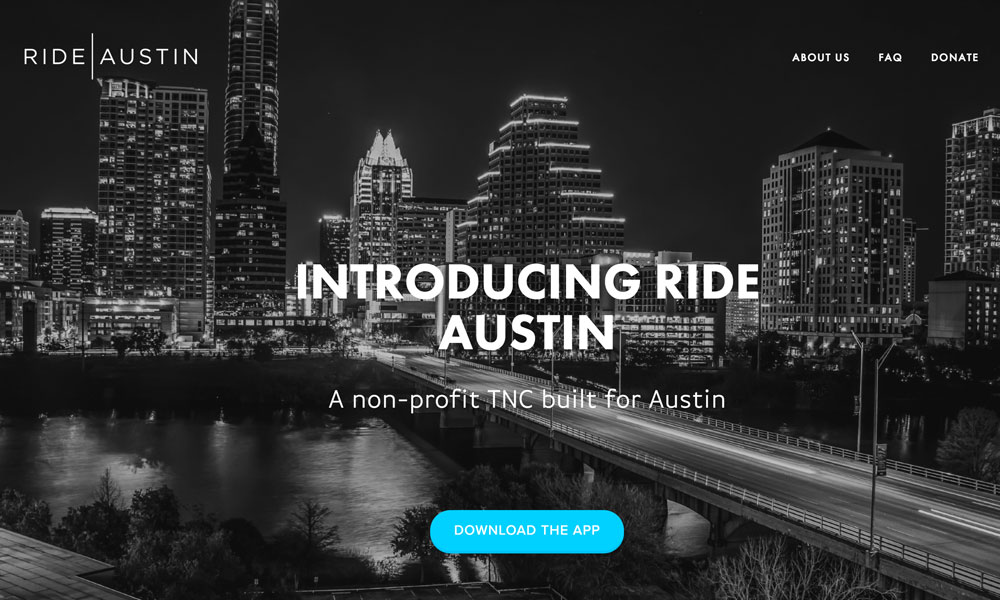
After Uber and Lyft Leave Austin, Tech Scene Rallies Behind Nonprofit Alternative
The departure of the major ride-sharing startups, still smarting over a failure at the ballot box, has left a hole in the Texas capital for people looking for a cheap ride. One of the firms hoping to fill it in Austin is doing something unusual for an app of its nature: organizing itself as a community-driven nonprofit.
The failure of a ballot measure backed by Uber and Lyft led the two companies to leave the market in Austin, Texas. Now the nonprofit sector is looking to fill the void left behind.
RideAustin, a new startup that describes itself as “proudly nonprofit” on its website, aims to offer a service similar to what the leading ride-sharing companies had offered, though it will follow the city’s impending legal requirements, which include fingerprint background checks.
If Austin wants ride-hailing, and wants it quickly, you have to have the whole community behind it. And a nonprofit is the best way to do that.
Designed in a two-week sprint, the app came about as part of a community effort by the city’s technology community, with various companies and community groups donating $4 million in cash and services to power the app. RideAustin has pledged to provide an inexpensive service to riders while paying drivers better (they’ll get 80 percent of all fare revenues raised) and even helping out local charities while making it easy for passengers to round up their fares for small donations.
Joshua Baer, CEO of the local accelerator Capital Factory and a supporter of the failed Prop 1 bill, noted in a Medium post that RideAustin was organized as a nonprofit partly due to the fact that it would allow the network to acquire investments and expand more easily, but not beyond the Austin market.
“It’s easier to fund because contributions are tax deductible and investors aren’t focused on a financial return, so the risks are different,” Baer argued. “As a nonprofit and community-focused solution, it has extra press and goodwill needed to achieve critical mass quickly. With a single-metro focus, it doesn’t have to always worry about ‘how will this scale to hundreds of cities?'”
The app is one of many to come out of the tech-friendly Austin in the two weeks since Proposition 1, a bill intended to roll back regulations placed on ride-hailing services by the Austin City Council, failed to pass, spurring the two leading ride-sharing companies to abruptly leave the market in protest of the rules. Uber and Lyft collectively spent a massive $9 million fighting in favor of the proposition, which would have prevented more significant background checks from taking effect.
With the debate still fresh in the minds of local Austinites, local tech guru Joe Liemandt, one of the key figures behind RideAustin, is hoping to use the app as an opportunity to mend fences after a political fight that turned into a proxy battle over the region’s identity.
“There was a big fight, and the vote was had,” Liemandt said, according to the Austin American-Statesman. “Uber and Lyft left. We are coming together to heal the wounds and move forward. If Austin wants ride-hailing, and wants it quickly, you have to have the whole community behind it. And a nonprofit is the best way to do that.”
An iPhone version of the app is already available, but the nonprofit is currently focused on getting drivers on board. Rides, at first only covering a limited area of the city, won’t start until the middle of next month.
(RideAustin screenshot)






Comments